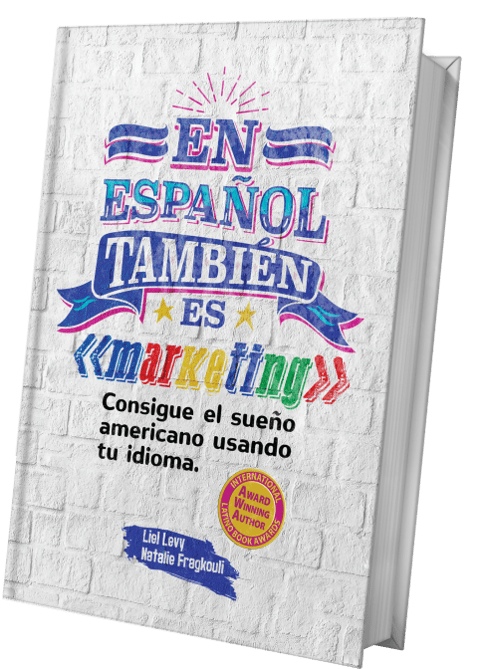Search Engine Optimization (SEO) is one of the most sought-after online marketing services among law firms.
And, yet, it’s also the most misunderstood.
Over the years, we’ve worked with a number of law firm owners who swore up and down that they’d given SEO a shot.
“It just doesn’t work.”
The truth is that most agencies selling SEO services overhype the immediate benefits so much that disappointment is inevitable.
However, once you understand what successful SEO really requires, you’ll understand why it deserves a spot in your marketing budget.
What You Have to Understand About SEO Before It Will Work for Your Law Firm
As we touched on a moment ago, law firm owners often flock to SEO because it promises to attract lots of free traffic from Google and other search engines around the clock, every day of the week. So long as people in your area are searching for the types of law you practice, SEO will bring them to your firm’s site.
Of course, if it were that easy, every law firm would be opening new offices month-after-month.
Instead, what you tend to hear from business owners who have invested in SEO is the complete opposite:
That it doesn’t work.
Over the years, SEO has developed a reputation as an overrated tactic that’s big on promises but short on results.
Why SEO Often Fails
The reason is simple.
SEO seems so intuitive that many business owners either think they can do it themselves or believe they know how to hire someone to do it for them, even if they themselves have no SEO experience.
Learning the ins and outs of SEO takes years.
Then, in order to be effective, you need to constantly pay close attention to Google’s ongoing evolution, as the search engine changes its ranking algorithm at least 500 times a year.
Are all of those changes equally important?
No.
But without years of experience, you won’t know which of those changes matter, much less how to adapt so you’re able to keep drawing traffic.
If you’re already working full-time to run your firm, you probably don’t have enough time to master the complexities of SEO.
That being said, the same applies to marketers. We’ve heard of people declaring themselves “professional SEOs” after just a year or so of working in this field.
Sorry – that’s just not enough time to learn how to turn Google into your personal lead-generation machine. It doesn’t surprise us when lawyers hire these “SEOs” and then end up disappointed.
So, before we tell you what you need to do to succeed with SEO, let’s quickly summarize what you need to not do:
- Try handling SEO on your own
- Trusting anyone who doesn’t have years of experience
Avoid those two mistakes and you’ve taken a big step toward success.
Setting You and Your Team Up for Success
That said, even if you hire an experienced SEO agency, you’ll still lack results if you don’t understand how to set up both parties – your firm and your agency – for success.
First, this is going to require patience. There are only 10 spots on the first page of Google. Just getting 1 one of those 10 spots can easily take a year depending on where you’re based.
Even then, reaching the very top of Google’s organic listings means that, on average, you’re only earning about 34% of the total traffic. You’ll have to reach that coveted first spot numerous times before you’re able to keep your lead-generation funnel full.
Second, you’re going to need the budget to afford these kinds of results. Again, we recommend you prepare for a full year of SEO work. It’s not that you won’t see any results before the end of that first year, but it will probably take about that long before you see stable and consistent traffic.
Understanding the 3 Central Tenets of On-Page SEO
As we mentioned, you probably don’t want to be the one doing SEO for your law firm’s website.
However, you also don’t want to hire someone for the job without understanding what that work should entail.
To achieve the kinds of results you want for your firm’s website, your SEO team must ensure that both search engines and users are able to:
- Understand what your whole website and each individual page of your site is about
- Identify each webpage as relevant to a search query or queries
- Find each webpage useful and worthy of ranking well on a search engine results page (SERPs)
Much of the work required to do this falls under what is known as on-page SEO. As the name suggests, this encompasses the type of work that needs to be done to optimize the elements on each page of your site to improve its visibility and rankings with search engines.
This involves strategizing, creating and, optimizing everything from the actual content on each of your pages to the HTML source code that only search engines look at.
Again, the goal of SEO isn’t just to make a website that Google can’t resist. It’s to create one that your prospects love, too. After all, what good is a million visitors a day if not a single one ever becomes a client?
In order to give both very important parties what they want, you need to understand the following three elements of on-page SEO.
1. Doing Keyword Research to Fulfill User Intent
Keywords are what your prospects type into search engines when they’re looking for your legal services. This could mean something like “personal injury attorney” or “personal injury attorney in Atlanta.” In short, people use keywords (which can be individual words or phrases) to tell Google what they’re hoping to find.
Therefore, one of the simplest things you can do to get Google’s attention is to make sure that the words on your site and the words your prospects are searching for are in harmony. If you’re a personal injury attorney, but those words don’t appear anywhere on your site, Google isn’t going to send you any traffic.
It’s the same idea that applies to keyword research for PPC. You have to think long and hard about all the different demographics who need your help and then create webpages that speak to them, including these important keywords.
Attracting Prospects Before They’re Ready to Hire an Attorney
If all you do is target the keywords and phrases searched by people who are looking to hire an attorney right now, you might eventually reach your goal of seeing consistent organic traffic on your site.
However, those ready-to-hire prospects are going to come with the most competition, so they’re going to take the longest to consistently attract.
Furthermore, solely focusing on those prospects means ignoring a large swath who aren’t quite ready to hire just yet but might be soon.
We’ll expand on this more when we cover content marketing in-depth, but the idea is that you can target a large array of keywords by addressing questions your market has before they’re ready to pick up the phone.
For example, you should definitely go after keyword phrases that include the service you offer and the practice area you serve. Again, “personal injury attorney in Atlanta” is a good example of this.
However, don’t forget about people who may be asking, “Do I need a personal injury attorney?” or “What should I look for in a personal injury attorney?”
Answer these questions for them and they may become your clients. Better still, because you went out of your way to attract them before they were ready to make a call, you’ll most likely face a lot less competition.
Keep in mind that answering these kinds of questions also helps Google understand if you’re a good fit when prospects search for just your legal service. Google will assume that if you’re able to provide helpful answers to these questions, you probably understand how to provide these services, too.
This is just one more way that producing this kind of content can help your law firm’s traffic increase significantly.
Finally, as your site’s search query volumes increase, you should have an easier time understanding what your buyer personas are looking for. You – or the expert you hire – can use this information to customize your content going forward for even better results.
This is especially true when you have a bilingual website and need bilingual SEO services. You may find that English speakers are interested in one thing while Spanish speakers are actually interested in something else.
2.Doing Technical SEO to Ensure Your Site Is Crawler-Friendly
Most people have a fairly easy time understanding the above concept, even if they’ve never done anything with SEO before.
Where we tend to see business owners struggle when they try handling their own SEO is with the technical side of things.
Technical SEO refers to the various boxes you need to tick to meet the technical requirements of Google and other search engines. In other words, you need to show them that your site is technically sound both because:
- These sites are easier for search engines to “crawl” in order to understand what they are about
- A site that isn’t technically sound won’t be user-friendly, either
Much like the engine of your car, the technical aspects of your site generally go unseen, but they are absolutely central to its performance – both with search engines and visitors.
Over the years, we’ve seen countless law firms fill their pages with every possible relevant keyword only to gain nothing in return. The problem is always that their site is slow, or it lacks the right meta tags, or its URL structures are messy, or some other technical issue (likely multiple) that tells Google, “This site is a gamble. Look for other options.”
Here are the most important technical SEO factors your site must address if you want consistent traffic.
Proper Sitemap Submission
Instead of making Google blindly choose where to begin crawling your site and how to navigate through each page, you can simply submit a “sitemap” through Google Search Console to make things a lot easier.
Pro tip: whenever possible, it pays to make things easier for Google.
While this isn’t strictly required, here’s how Google explains the importance of a sitemap:
“If your site’s pages are properly linked, Google can usually discover most of your site. Even so, a sitemap can improve the crawling of larger or more complex sites, or more specialized files.”
Use a sitemap to give Google directions when reviewing your site and you’ll immediately notice an improvement to your rankings.
Clean, Descriptive URL Structures
This is another simple step you can take to make things easier for Google and yet we see a lot of law firms completely neglect it.
Here’s what a good URL looks like for a law firm:
https://yourlawfirm.com/practice-areas/truck-accidents
Just by looking at it, you can probably figure out what’s on the corresponding page. That’s the sign of a quality URL.
Here is what a bad, but all-too-common URL looks like:
https://yourlawfirm.com/practice-areas/1654841
What’s on this page? You can’t tell just by looking at the URL.
Neither can Google – never good.
A good URL is descriptive, clean, and as short as possible. Ideally, they should include relevant keywords, too.
When this involves using multiple words, separate them with hyphens, not underscores. Choose:
https://yourlawfirm.com/practice-areas/truck-accidents
Over this:
https://yourlawfirm.com/practice_areas/truck_accidents
Google actually recommends dashes, so it’s just best to go that route. The search engine basically ignores underscores, so including them has no effect. It just looks to Google like words are being slammed together with no spaces, which isn’t very helpful.
Page Metadata
Here’s an extremely simple definition of metadata:
“Metadata is information stored within a document that is not evident by just looking at the file.”
In SEO, this means that there’s a world of important and descriptive text that your prospects will most likely never see, but that Google reviews immediately. Metadata can do anything from telling Google the structure of a webpage to which pages it can ignore during its crawl.
However, there’s also some metadata that will show up for your users. Two of the most important are your meta title and meta description.
The former is the actual name of your page. It should summarize what a user will find if they click on it. For SEO purposes, it should also include your main keyword.
Meta descriptions don’t have any effect on your rankings, but they add helpful details about your page. Think of them like a commercial. The better job your meta description does of selling your page, the more visitors will click on it. The more they click on it, the better it will do in Google.
Descriptive Schema
Schema is a very specific type of structured data that makes it easy for Google and other search engines to understand the purpose behind various website entities.
For example, your law firm probably has a “Contact Us” page. You can use Schema to tell Google that’s what the information on the page refers to, so the search engine knows to share it right on its results pages where everyone can see it. Client reviews would be another example relevant to law firms.
Don’t make Google guess what’s on your page or why it’s important. Between metadata and Schema, you have two very powerful ways to add context that will win over Google.
Mobile Optimization
It should come as no surprise that the vast majority of people who visit your site most likely do so using a mobile device.
This is especially true if you target Hispanic prospects as they have been “super mobile, super consumers” for years now.
Google also understands that most people use mobile devices when accessing their search engine. That’s why they don’t simply suggest that owners make their sites mobile-friendly.
They demand it.
All the way back in 2015, Google began judging websites on their mobile-friendly pages. In essence, the desktop version of your website could be immaculate, but if you lack a mobile-friendly counterpart – or it simply isn’t as impressive – expect a cold shoulder from the world’s most popular search engine.
Fast Load Times
Similar to having a mobile-friendly site, your law firm should either have a website that loads fast or…none at all.
Again, just like with mobile-friendly sites, the reason is simple: people want fast sites. If that’s what people want, that’s what Google wants, too.
How fast does your website need to be?
According to research done by Kissmetrics, more than 25% of users will leave your site if a page takes more than three secondsto load.
For this reason, any attempt at speeding up your site is most likely worth the effort.
Constant Monitoring
As you continue to build out your law firm’s website, it’s inevitable that you’ll make decisions that negatively impact your organic rankings.
This doesn’t have to be a major problem, though.
Just be sure to keep an eye on your website for any technical SEO problems that require your attention ASAP.
The longer you let them go, the worse the damage will be to your relationship with Google.
Fortunately, popular SEO platforms like SEMrush, Moz, and Screaming Frog make it easy to monitor and address these kinds of errors. They come with a decent learning curve – one more reason to hire a professional – but they’re a requirement for keeping your site in Google’s favor.
3. Making Sure Your Content Is King
For a definition of content marketing, let’s turn to the Content Marketing Institute:
“Content marketing is a strategic marketing approach focused on creating and distributing valuable, relevant, and consistent content to attract and retain a clearly defined audience — and, ultimately, to drive profitable customer action.”
As you’ve already learned, content and SEO go hand-in-hand. Without one, your efforts on the other are seriously diminished.
For example, your keyword research won’t do much good unless you then use those keywords in content that is relevant to your market.
So, content marketing is a very intentional way of using content to draw Google’s attention and then win over customers by giving them the information that they want.
This is another one of those elements of SEO that probably seems obvious, but, once again, we’ve seen countless law firms drop the ball here. Their blogs are full of articles that their market isn’t actually searching for. As a result, they don’t get any traffic from them whatsoever.
Why SEO-Optimized Content Still Fails
That doesn’t mean we’re recommending you create carbon-copy content that’s the same as your competitors.
That’s one of the biggest problems we see with content that is created with Google in mind:
It’s all the same.
We’re convinced there’s just one copywriter who writes every webpage for every attorney in every state regardless of their practice areas.
Very, very few law firm websites have content that stands out, feels natural, and is personalized to that unique firm.
In essence, law firm content generally lacks character. Of course, your profession is a very serious one, but that doesn’t mean that your content needs to be boring.
It should be interesting, compelling, and completely unique.
That’s why, at Nanato Media, we take the time to understand what you are all about before writing content that stands out from the competition.
Creating Bilingual Content for Your Firm’s Site
Speaking of our area of expertise, when it comes to Spanish content, DO NOT, by any means, use Google translate to convert your words from English into Spanish.
It won’t remotely work.
At all.
Here is an example for those of you who understand Spanish.
English: Attorney who fights for our community.
Spanish: Abogado que lucha por y para “la raza”
See how different the transcreation is from the translation?
So, don’t handle the translation yourself if you’re not experienced with transcreation.
Put yourself in your Hispanic prospects’ shoes. If you were looking for legal help and landed on a webpage that was written in completely incorrect English, would you take this law firm seriously?
Of course not!
Don’t write the same blogposts for Spanish and English, either. Use keyword research and search volumes as your guide on what to write and how to approach each market.
Using Content to Earn Backlinks
One of the best ways to build a positive reputation with Google is by earning backlinks for your site. When another site links to yours, it tells Google, “Our site trusts theirs enough to send it traffic.”
The more this happens, the more Google will adopt the same opinion.
This is where content that is legitimately helpful for your audience can be legitimately helpful for your firm. Create the kind of resources that other sites will link to for their audiences and watch your backlink profile grow.
For example, if you’re an immigration attorney, your insights on current trends, laws, politics, and elections would probably be helpful to a whole host of people aside from potential clients. Analyze these kinds of topics and enjoy the increased attention that follows.
Internal Links
Backlinks are treated as SEO gold, but don’t forget about internally linking, too.
Internal links are those that point from one page to another on your site.
This is a great way to show off more of your site to visitors. Link from one post to another one – a relevant one – and you’ll see your pages-per-session improve.
Linking internally like this also – once again – makes things easier for Google. It gives the search engine a better understanding of how these pages relate to one another.
The Importance of Off-Page SEO for Your Law Firm
Now, let’s move on to the other side of the coin: off-page SEO.
As you probably guessed, this refers to the many off-page ways you can gain attention for your site from other places online.
We touched on one a moment ago when we brought up backlinks. However, instead of just publishing content and hoping it gets noticed, you can actually engage in link building, which means you actively approach other sites and pitch them on the value of linking to your content.
You can also approach relevant sites to see if they’d like you to contribute guest posts in exchange for a backlink to your site (just make sure they are “follow” links or they won’t help your rankings). Many lawyers do this with attorneys from other practice areas. They exchange backlinks by providing relevant content for each other’s sites. Tools like BuzzStream are also great for finding backlinking opportunities.
Google My Business
Google My Business (GMB) is an essential backlink source for every business. It’s one of the easiest but also most important ways to get Google to recognize your law firm’s website as a legitimate resource for local users. Take full advantage of it.
Other Reliable Sources for Backlinks
Directory listings are a straightforward source for backlinks. Simply reach out to them with your law firm’s relevant information to get added and earn that valuable link. Some require payments, but it’s worth it for high-authority listings.
Online local newspapers, TV, and radio sites can be great options, too. Reach out and most of them will add sponsored content, especially the smaller ones.
Reputation management is another powerful concept. Not only will it improve your law firm’s online profile, but it can also be an extremely effective form of link building.
Podcasts can be good sources for links, too. They’re another example that increases your overall exposure at the same time. Guests on our legal marketing podcast often report that they’ve received more attention from prospects and Google just from appearing on our show.
Finally, schedule Google alerts for your name, the names of your partners, and the names of your law firm. Any time your name is mentioned online, you want to know.
This is vital to effective reputation management, but you also want to make sure that, any time someone talks about your firm, they’re linking to your site. Any mention – from a news story to the “Thank You” page on a charity’s website – can provide you with a valuable link if you just ask.
Start Leveraging the Power of SEO for Your Law Firm
Is SEO complicated?
Yes.
Is it worth it?
Yes.
If you’d like the benefits of organic traffic without going through years of learning the ropes, let us help.
Contact us today to learn all about how our law-firm specific expertise can put your website in front of more qualified prospects.





